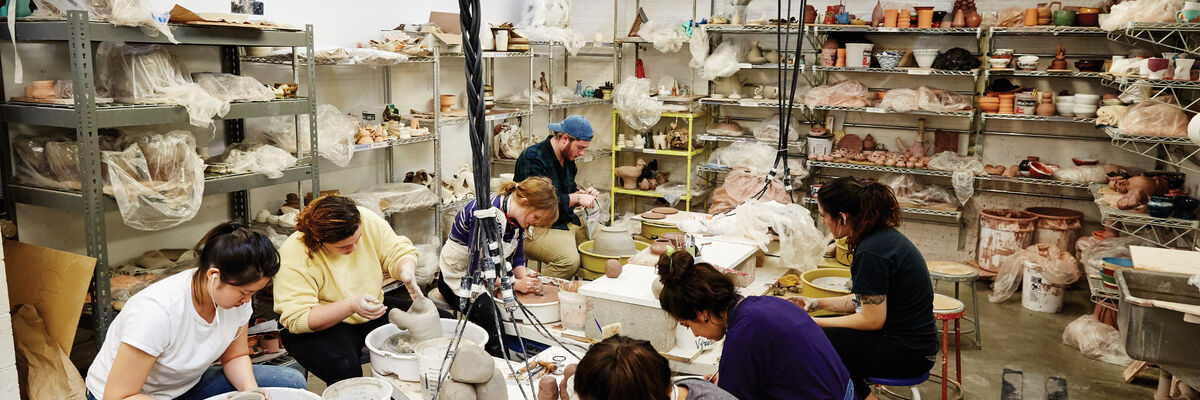
Enabling Artists
by Sammi Skolmoski (MFA 2016)
Olivia Junell (Dual MA 2016) has made arts administration her full-time studio practice as the Managing Director at High Concept Laboratories (HCL), an arts organization providing resources for independent artists through workshops and residencies, and as an MA candidate at SAIC. Once she struggled to maintain a rigorous studio practice, which was continually interrupted by her “day jobs.” But Junell found a way to marry the two.
“I really see arts administrators as filling this bridge between an artist and everyone who’s not an artist,” Junell says. “An artist’s main focus should be on making art.”
One way she helps artists keep that focus is through HCL’s residency program. Most recently, she worked closely with Honey Pot Performance, a dance group that was an HCL artist–in–residence from January through July 2014, on their project Juke Cry Hand Clap, a multidimensional dance performance and research project that was a featured event of Chicago Artists Month that Junell called, “one of the first serious, historical inquiries into house music and its roots in Chicago.”
“Honey Pot is an amazing example of a group that really knows how to work collaboratively,” Junell says. “And were great about involving the other residents and bringing in the public."
Honey Pot and HCL held a series of mapping sessions for Juke Cry Hand Clap—events that served to source a people’s remembered history of house music in Chicago through its migration among neighborhoods and an exploration of the ways house music has engaged issues of race, class, gender, sexuality, power, and social justice.
“People would come and fill out these sheets about their experiences with house music and then they had these huge maps all over the lobby that people could put on post-its where different venues were across Chicago,” she explains. “And then it was really just a big dance party.”
Junell was impressed at how much Honey Pot accomplished during their residency through the rehearsals, workshops, mapping sessions, and culminating performance of Juke Cry Hand Clap, which included the creation of their own model juke joint in the cavernous MANA lobby. “They had a very strong vision for what they wanted to do while they were here at High Concept,” she says. “They’ve used all the resources here, which has been really amazing.”
Junell found HCL in her first semester at SAIC. “The first project in our management studio was to create a bike tour of different independent art spaces in Chicago,” she explains. The project required thorough research about each space, and while Junell was digging through HCL’s website, she noticed a call for a development director and immediately applied. “There’s a lot of room and support here to take risks and experiment and that’s what was appealing to me about HCL.”
The Chicago art scene doesn't suffer from the hyper–focused scrutiny that cities like New York do, according to Junell. “There’s a lot more freedom, and people really take advantage of the opportunity to do really interesting, crazy, off–the–wall things, and take a lot of risks,” she explains. “There’s a lot of room for it not to be a final product, but for it to be an evolving sort of thing which I think is a lot more interesting for all the artists.”
Junell is grateful to SAIC for helping her sculpt her practice as an arts administrator. “[The Arts Administration program at SAIC] immediately places you in Chicago, doing these very real projects with real organizations,” she says. “It’s placing you one right after another into places where you’re going to be able to make connections, and really have a full career.
